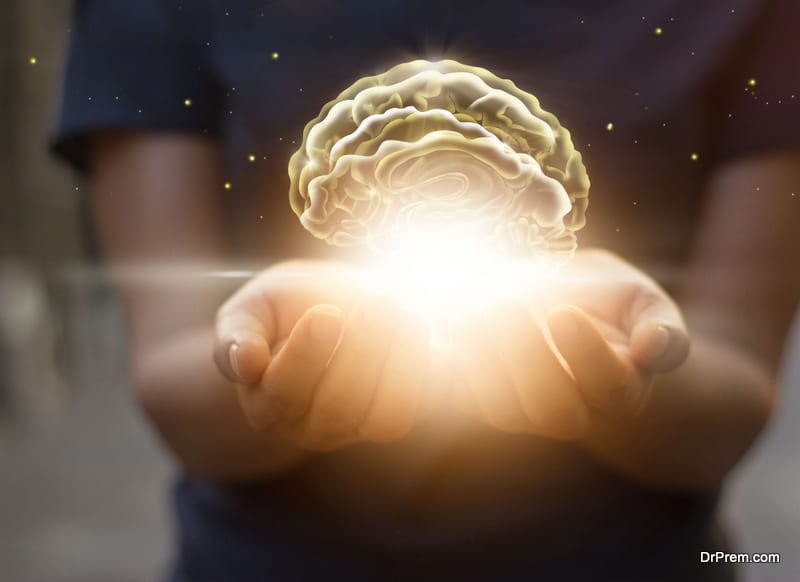Teenagers and social media are inseparable. Their life revolves around their Snapchat and Instagram and other social media accounts. There are studies which have found social media use is detrimental to the mental health of teenagers. So how do parents determine where to draw the line, whether they should take a firm stand on the use of social media or else find another solution? Read on to know more about social media and teen mental health, if you have a teen in your home, or else a child who is soon going to be a teenager.
The relation between social media and teen mental health
 The effect of social networking on teenagers cannot be taken lightly. Teenagers are at a vulnerable age, and they experience emotional turmoil if they face criticism on social, or feel left out and excluded. Some teens are able to handle it better and state that they receive a boost to their self-esteem. So there seems to be a positive and negative impact of social media on teenager. What does science say?
The effect of social networking on teenagers cannot be taken lightly. Teenagers are at a vulnerable age, and they experience emotional turmoil if they face criticism on social, or feel left out and excluded. Some teens are able to handle it better and state that they receive a boost to their self-esteem. So there seems to be a positive and negative impact of social media on teenager. What does science say?
Response of the teen brain to social media
 UCLA researchers who mapped the brains of teenagers, found that some regions of the teenage brain was activated by the ‘likes’ they received, which sometimes made them use social media even more. The study, on social media and teen mental health was conducted on 32 teenagers using fMRI scanner. The researchers used a fictitious app, which imitated Instagram. More than 140 images were shown to the teens, and they believed that the likes they got were from their ‘friends’. But actually, the researchers had assigned the likes.
UCLA researchers who mapped the brains of teenagers, found that some regions of the teenage brain was activated by the ‘likes’ they received, which sometimes made them use social media even more. The study, on social media and teen mental health was conducted on 32 teenagers using fMRI scanner. The researchers used a fictitious app, which imitated Instagram. More than 140 images were shown to the teens, and they believed that the likes they got were from their ‘friends’. But actually, the researchers had assigned the likes.
The scans of the teens’ brain scans revealed that ‘nucleus accumbens’, a part of brain’s rewarding circuitry became active when the teens viewed a huge number of likes on their photos. According to the scientists, this part of the brain is the same part which is affected or becomes activated when we see photos of people that we like/love or when we win some money. The researchers stated that this reward centre is very sensitive during teenage, which is why teenagers are probably attracted to social media. This research could explain why teenagers get immersed in social media, so that they can experience the ‘feel good’ feeling from the ‘likes’.
In the same study, which studied the effect of social networking on teenagers, the teens were shown random photos, risky and neutral. It was seen that they ‘hit’ like on the most popular photos, irrespective of whether they liked the photos or not, or even if the image was negative or positive. The scientists concluded that social media has a positive and negative impact on teen’s mental health.
How deep is the impact of social media on teenagers mental health
 We have seen that there is a strong connection between social media and teen mental health, scientifically, as it does have a physical effect on the functioning of the brain.
We have seen that there is a strong connection between social media and teen mental health, scientifically, as it does have a physical effect on the functioning of the brain.
Teenager’s brains are developing brains which is vulnerable to time spent online. Most teenagers find it difficult to self-regulate screen time so their risks increase. They’re also very susceptible to cyberbullying, peer pressure, sexting etc, which has a bad psychological impact on them. Some of the mental issues which teens experience due to over-exposure to social media:
Depression
 One of the mental health problems which researchers have found between social media and teen mental health, is depression. Though scientists have not discovered a direct relation or a ‘cause and effect’ relation between depression and social media, they have found that social media use intensifies depression symptoms. Teens upset by social media reduce socializing in person and feel lonelier.
One of the mental health problems which researchers have found between social media and teen mental health, is depression. Though scientists have not discovered a direct relation or a ‘cause and effect’ relation between depression and social media, they have found that social media use intensifies depression symptoms. Teens upset by social media reduce socializing in person and feel lonelier.
According to a study which was published in ‘Computers in Human Behavior’, it was found that people/adolescents who used multiple sites of social media were more vulnerable to depression than those who used just one or two sites. Other studies have found that prolonged social media use is related to symptoms and signs of not only depression, but low self-esteem as well.
Sleep deprivation
 Many teens spend hours checking their social media accounts to the extent that they start to lose sleep. Sleep deprivation has a bad psychological impact which leads to moodiness, drop in their grades, overeating/binge eating, and sometimes even anorexia. Anxiety as well as ADD too has a negative effect on teens, which can make them unable to function normally. One study conducted in Britain found that some teens woke up in the middle of the night to check social media.
Many teens spend hours checking their social media accounts to the extent that they start to lose sleep. Sleep deprivation has a bad psychological impact which leads to moodiness, drop in their grades, overeating/binge eating, and sometimes even anorexia. Anxiety as well as ADD too has a negative effect on teens, which can make them unable to function normally. One study conducted in Britain found that some teens woke up in the middle of the night to check social media.
Anxiety
 Teens are extremely invested in social media. They feel pressured to respond quickly and also to have well-written posts and perfect photos online. Some studies have revealed that the larger the teenager’s social circle, the greater is their anxiety to keep up with their online life.
Teens are extremely invested in social media. They feel pressured to respond quickly and also to have well-written posts and perfect photos online. Some studies have revealed that the larger the teenager’s social circle, the greater is their anxiety to keep up with their online life.
Also, they feel agitated if they commit an online faux pax, as this leads to negative comments and online shaming. Cyberbullying too is a reality which most teens face if their posts are less than perfect.
Envy
 Envy and jealousy are normal emotions but they wreak havoc on young minds, if they see their peers experience something they have not. They envy the exciting life that they see their peers lead, not knowing that people, including teenagers post only good/positive things only.
Envy and jealousy are normal emotions but they wreak havoc on young minds, if they see their peers experience something they have not. They envy the exciting life that they see their peers lead, not knowing that people, including teenagers post only good/positive things only.
Teenagers need to know that every single person on the planet has struggles, which they keep strictly out of the limelight. Many teenagers deal with envy and jealousy by being mean to others.
Communication problems
 Social media has emerged as a great platform to keep in touch with family and friends. But it has its drawbacks – no one see the facial expressions and body gestures, which might make it difficult for teens to develop their social interactions. This might adversely affect their relationships, during teen years and even when they become adults.
Social media has emerged as a great platform to keep in touch with family and friends. But it has its drawbacks – no one see the facial expressions and body gestures, which might make it difficult for teens to develop their social interactions. This might adversely affect their relationships, during teen years and even when they become adults.
As a teenage brain develops rapidly during adolescence, parents should set firm guidelines to social media use. They should also explain the relation between social media and teen mental health, and the adverse affect it can have on their mental health. A teen who has the support of his parents will be able to negotiate social media in a harmless manner.



